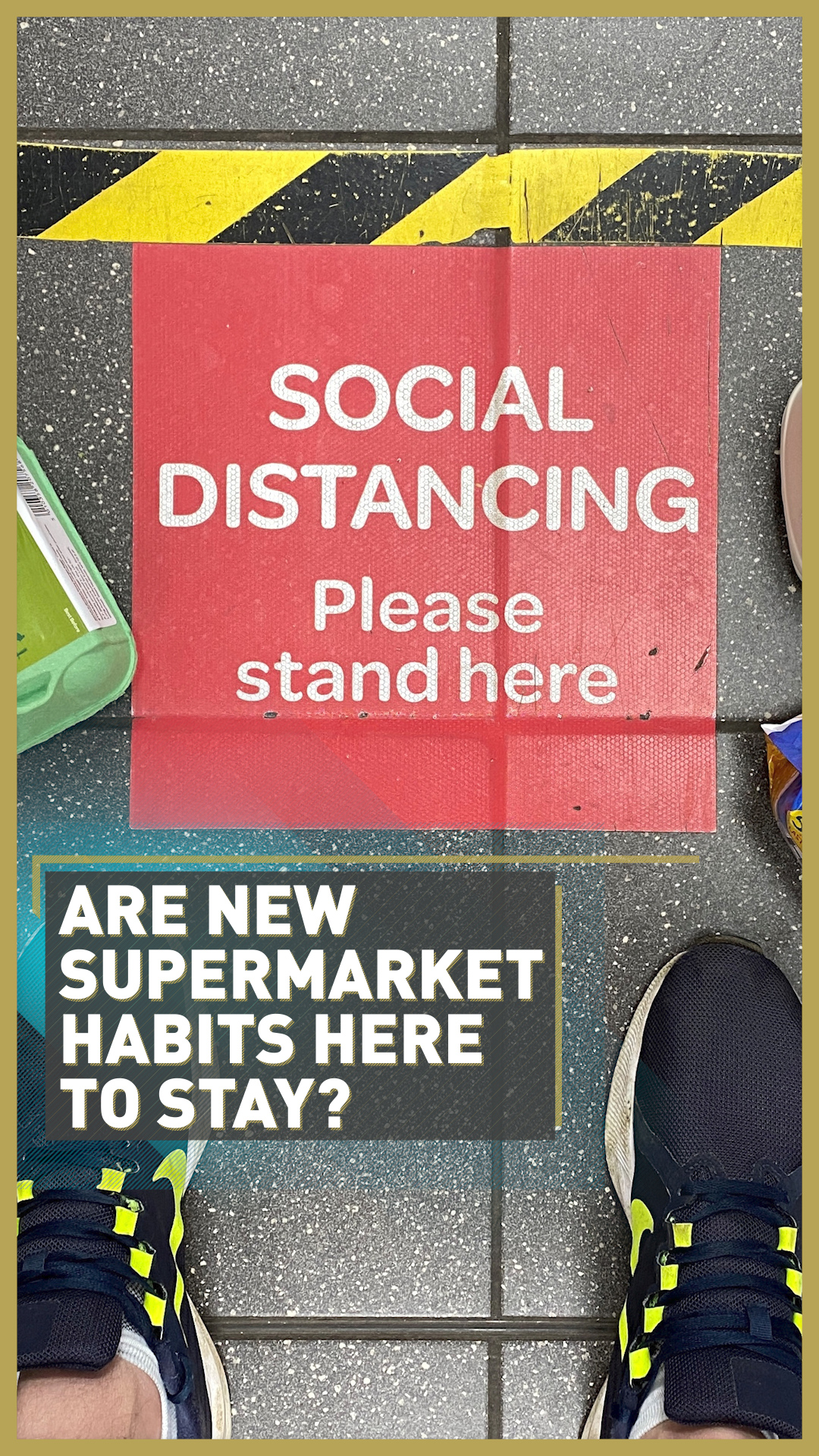01:52

There has been a visible difference in the way people have changed their shopping habits since the start of the COVID-19 pandemic.
This comes after supermarkets implemented new regulations meaning customers have to adhere to social-distancing rules before, during and after their supermarket shopping experience.
From tape and signs telling people to remain two meters apart inside the store, to queuing outside before entering the supermarket there has been a seismic shift in the way we shop.
Supermarkets across the UK have noted a big increase in the use of online delivery services, so customers do not have to come into contact with anyone at the shop. UK chain Tesco has doubled its available weekly home delivery slots since the start of the pandemic to 1.2 million to meet the ever-growing demand for this way of shopping.
Also, self-scanning services – such as Sainsbury's "Smartshop," which now accounts for 30 percent of in-store sales compared with 10-15 percent participation two months before the pandemic, and Tesco's "Scan-As-You-Shop" system – have been in demand as customers look to steer clear of other humans.
Anna Angell, a consumer behavioral consultant, explains the move: "The supermarkets are drawing more attention to it [other ways to shop] and have been advertising it a bit more on websites and things like that. So I think there's just been an overall drive and awareness of these sorts of services and obviously sort of desire to be using things that can minimize our social contact.
"I think, understandably, people are anxious during this time and we're naturally risk-averse beings, so wherever possible we're going to want to avoid situations where we can, sort of, expose ourselves to the virus and these digital self-scan services and home deliveries are offering and a way for us to do so," she added.

Th use of self-scanning systems has soared since the start of the COVID-19 crisis. /Simon Ormiston/CGTN
Th use of self-scanning systems has soared since the start of the COVID-19 crisis. /Simon Ormiston/CGTN
Trend continues across Europe
It's not just the UK that is seeing these changes. The rest of Europe is having to get used to differences in their shopping habits, too.
In Belgium, supermarkets have limited the number of shoppers in the store at any one time, everyone is required to use a trolley that has been wiped with anti-bacterial wipes before use and contactless payment is advised and even required in some places.
Meanwhile, in Italy guards monitor the number of people entering the shop at one time, causing queues down sidewalks across the country. You can also not enter any supermarket with another family member.
Social-distancing signs and delineating tape are a regular sight in supermarkets across the continent as stores try to guide people to follow the rules.

Many UK supermarkets force shoppers to adhere to social-distancing regulations. /AFP
Many UK supermarkets force shoppers to adhere to social-distancing regulations. /AFP

The situation in Spain's stores is very similar. /Reuters
The situation in Spain's stores is very similar. /Reuters

While in Italy, like much of Europe, a queuing system is in place before you can enter. /AFP
While in Italy, like much of Europe, a queuing system is in place before you can enter. /AFP

France also has signs on the floor to remind people to stick to the regulations in place. /Reuters
France also has signs on the floor to remind people to stick to the regulations in place. /Reuters
Can we expect this to continue?
In short, yes we can...
Many supermarkets expect a further increase in the participation and demand for home-delivery shopping and the use of self-scanning systems between now and the complete end of lockdown.
And Angell expects at least some of these trends to continue past the end of the pandemic: "Like with any behaviors, the longer we enact a behavior the more likely it is that we will adopt it and form new habits. And so the longer this situation is going to last, more people are likely to adopt them and continue with them past that."
Video editing: Paula Harvey